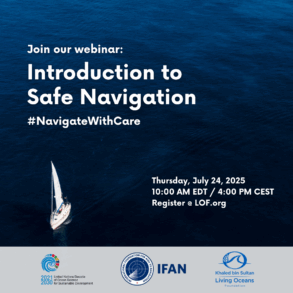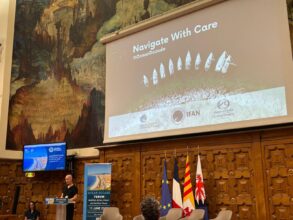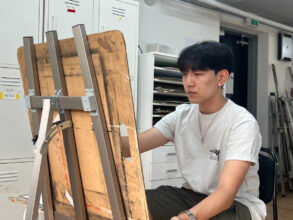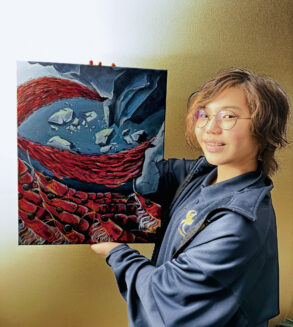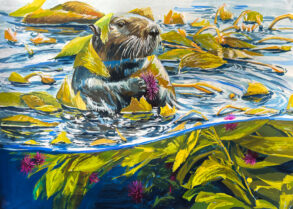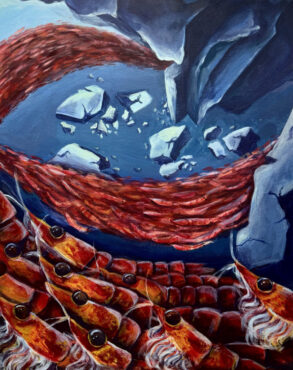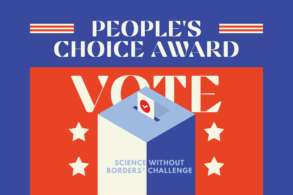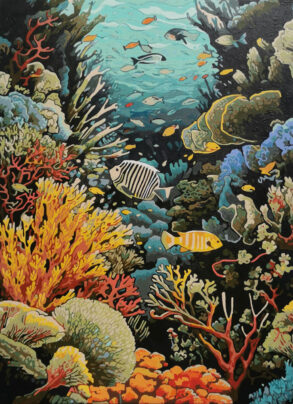Filter by
Updates & Media
Sub filter:
Join us for our first #NavigateWithCare…
July 3, 2025
Every boat on the water has the power to protect—or harm—our ocean. That’s the message at the heart of Navigate with Care: Protect Our Oceans, a global campaign from the Khaled bin Sultan Living Oceans Foundation and the International Foundation for Aids to Navigation (IFAN). An official activity of the United Nations Decade of Ocean Science for Sustainable Development, this campaign aims to promote safe and environmentally responsible boating practices that safeguard both people and marine ecosystems. As part of this initiative, we are hosting a free, four-part webinar series to empower mariners, conservationists, and ocean advocates with practical knowledge to protect the ocean through safe navigation.
Navigate with Care: A New Campaign…
June 11, 2025
Today at the UN Ocean Conference in Nice, France, the Khaled bin Sultan Living Oceans Foundation (KSLOF) and the International Foundation for Aids to Navigation (IFAN) proudly launched Navigate with Care: Protect Our Oceans, a joint campaign that promotes safe and environmentally responsible boating practices. Unveiled by IFAN’s Development Manager Francesca Pradelli during the Ocean Decade Forum, the campaign encourages mariners to take simple, proactive steps to avoid harming sensitive marine ecosystems such as coral reefs, mangrove forests, and seagrass beds. At its heart, Navigate with Care is about advancing two vital and connected goals: safety at sea and protection of marine life...
Meet Hyungjun Chin, Our 2025 Art…
June 5, 2025
We hope you enjoyed meeting Gia, the first-place winner for ages 11-14 of our 2025 Science Without Borders® Challenge. It is my pleasure to introduce you to Hyungjun Chin, the first-place winner in our 15-19-year-old age group! Hyungjun is a humble and …
Meet Gia Kim, Our 2025 Art Contest 1st…
May 29, 2025
The Science Without Borders® Challenge continues to inspire young artists around the world to use their creativity for a cause. This year’s first-place winner in the 11–14 age group, Gia Kim, stood out for her compelling take on the 2025 theme: Marine Keystone Species. I could immediately tell how passionate Gia was about the message she wanted to convey in her artwork—she fully understood the impact these tiny but mighty creatures make. Her piece highlights krill, a small but essential species in the ocean food web, and communicates a powerful message about the threats they face from global warming...
A Tribute to the Ocean’s Keystone…
May 21, 2025
ANNAPOLIS, MD — The Khaled bin Sultan Living Oceans Foundation is proud to announce the winners of the 2025 Science Without Borders® Challenge, an international student art contest that promotes ocean conservation. This year’s theme, Marine Keystone Species, invited students …
A Tribute to the Ocean’s Keystone…
May 21, 2025
The Khaled bin Sultan Living Oceans Foundation is proud to announce the winners of the 2025 Science Without Borders® Challenge, an international student art contest that promotes ocean conservation. This year’s theme, Marine Keystone Species, invited students to create artwork highlighting species …
Vote for the People’s Choice Winners…
May 2, 2025
It’s time to vote for your favorite artwork in the 2025 Science Without Borders® Challenge—help us select the People’s Choice award winners! Hosted by the Khaled bin Sultan Living Oceans Foundation, this annual student art contest engages young people in ocean science …
2025 Science Without Borders®…
May 1, 2025
The response to our 2025 Science Without Borders® Challenge has been overwhelming! We’ve been blown away by the sheer number of submissions we received from aspiring young scientists and artists worldwide. Last week, we proudly unveiled the finalists in the 11-14 age …
2025 Science Without Borders®…
The response to our 2025 Science Without Borders® Challenge has been overwhelming! We’ve been blown away by the sheer number of submissions we received from aspiring young scientists and artists worldwide. These gifted students come from all over the globe, including …
2025 Science Without Borders®…
The Khaled bin Sultan Living Oceans Foundation is delighted to announce the finalists in our 2025 Science Without Borders® Challenge! This year’s theme, “Marine Keystone Species,” invited young artists from across the globe to explore the critical roles these species play …
